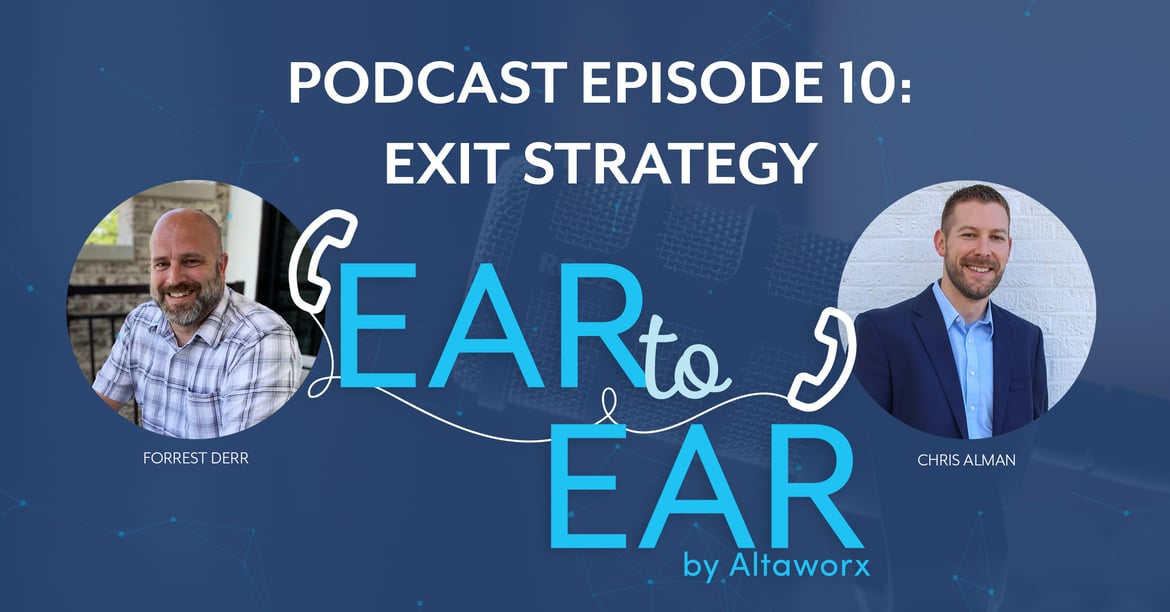Ear To Ear Podcast | EPISODE 10: Exit Strategy
Dial into this captivating episode featuring Forrest Derr, President of Altaworx, and our special guest, Chris Alman, the visionary Founder & Lead Advisor of Equip Financial Partners.
Starting early is crucial when it comes to developing exit strategies and wealth management for business owners. Planning for your business exit should ideally begin five to 10 years in advance, similar to retirement planning. Most individuals only start the process when they feel exhausted or desire a change, but waiting until that point leaves limited time. By starting earlier, you would have more opportunities to sell and a greater chance of achieving your desired outcome.
Explore the tools and resources offered at Equip, don't hesitate to contact Chris Alman and visit their website: https://www.equipfp.com
Also, listen on Spotify or Apple!
To stay connected with industry experts like Forrest Derr and Chris Alman, make sure to connect with them on LinkedIn.
No video selected
Select a video type in the sidebar.































